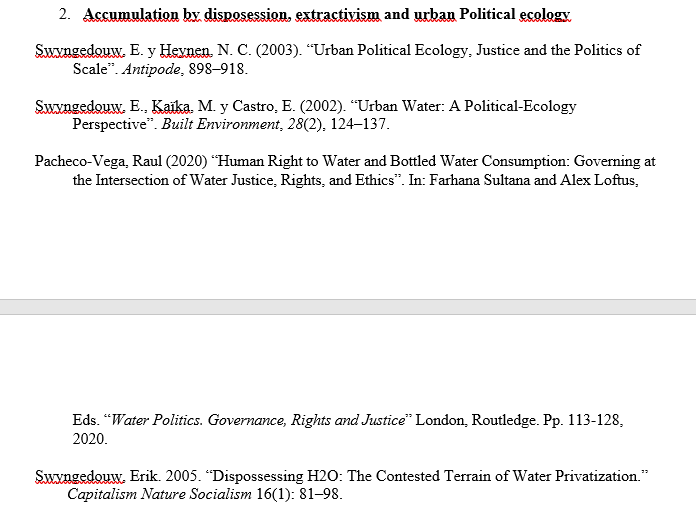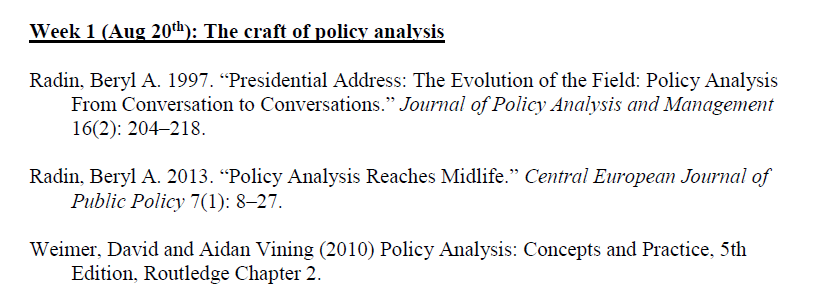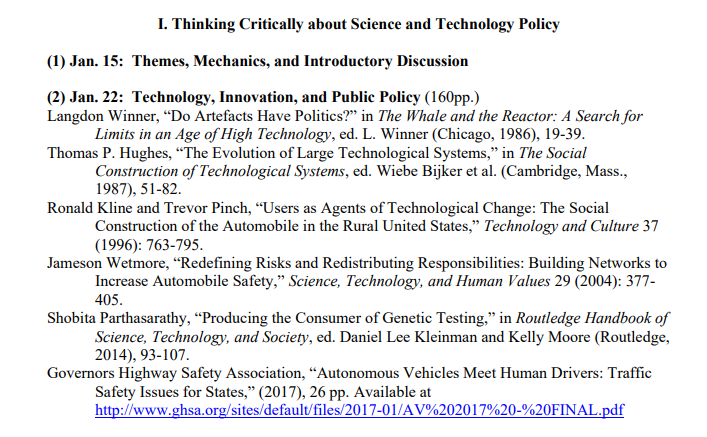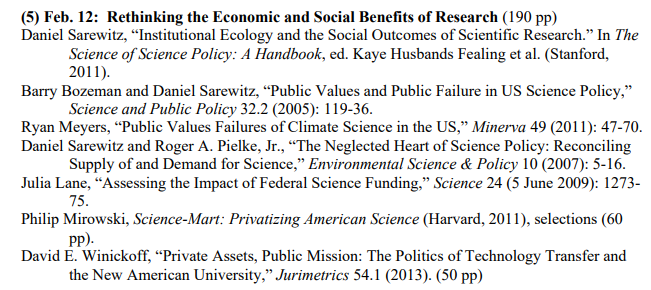THREAD: The Spring 2021 term is coming upon us quite fast, and I have wanted to write a thread on how to prepare for a graduate-level seminar. I know the range of difficulty of readings, amount/volume/number of pages assigned is going to vary, but I've been thinking about this.
I am going to assume a course workload of 4-5 courses per week (exactly what I took when I did my PhD at The University of British Columbia), regardless of whether it is Masters' or PhD.
When I was a doctoral student, I took several courses across disciplines and faculties.
When I was a doctoral student, I took several courses across disciplines and faculties.
I remember very distinctly taking a class with Dr. Terre Satterfield on Science, Values and Policy and thinking "oh wow, each week has a theme!" (remember, although I have two brothers with PhDs and my Mom has a PhD, there's a lot I didn't know about the #HiddenCurriculum)
I design my own syllabi using a similar approach, where I choose what I want my students to learn (and what I want to learn, too!) I call this The Answer Seeking Method for Syllabus Creation http://www.raulpacheco.org/2016/08/creating-a-syllabus-for-a-new-course-the-answer-seeking-method/
I also make sure my courses have their own narrative.
I also make sure my courses have their own narrative.
I use a storytelling approach to developing syllabi.
https://www.universityaffairs.ca/career-advice/career-advice-article/syllabus-writing-storytelling/
I have also analyzed how other faculty write their syllabi and many follow some variant of these two methods (or a combination!).
Anyhow, I am going to assume in this thread each week has a theme.
https://www.universityaffairs.ca/career-advice/career-advice-article/syllabus-writing-storytelling/
I have also analyzed how other faculty write their syllabi and many follow some variant of these two methods (or a combination!).
Anyhow, I am going to assume in this thread each week has a theme.
I remember very distinctly that Dr. Satterfield always told me to look at the readings as a whole:
"what do these readings, in their entirety, tell you? what's the coherent story/narrative?"
This key question has helped me both prepare for seminars (as a doctoral student), and
"what do these readings, in their entirety, tell you? what's the coherent story/narrative?"
This key question has helped me both prepare for seminars (as a doctoral student), and
... refine my syllabi (as a professor).
Usually faculty write their syllabi offering suggestions on how to approach the readings. But in case they don't, I always recommend to look at the entire week's block of reading materials and look for the theme/narrative/story.
Usually faculty write their syllabi offering suggestions on how to approach the readings. But in case they don't, I always recommend to look at the entire week's block of reading materials and look for the theme/narrative/story.
So, here is one week of my Socio-Environmental Conflicts graduate (Masters', PhD) course. It's on accumulation by dispossession, urban political ecology and extractivism.
Those of you who work in this field will recognise Swyngendouw and his work.
Those of you who work in this field will recognise Swyngendouw and his work.
It's 4 readings (30 pages per, about). What would I do, if I were a grad student taking my seminar? I would devote an entire day/morning (depending on how fast you read). When I was doing my PhD I prepared for seminars the day before (hard to do if you take 2 seminars same day!)
I recommend my undergrad and grad students to do a quick AIC skim http://www.raulpacheco.org/2017/01/finding-the-most-relevant-information-in-a-paper-when-reading-a-three-step-method/ to get the most relevant themes/ideas out of a paper.
Once they have done a quick read, they can go back for The Second Round http://www.raulpacheco.org/2019/11/on-skimming-reading-material-and-the-importance-of-the-second-round-of-in-depth-reading/
Once they have done a quick read, they can go back for The Second Round http://www.raulpacheco.org/2019/11/on-skimming-reading-material-and-the-importance-of-the-second-round-of-in-depth-reading/
For a second round, I suggest looking to see how each reading connects with one another. For example, for the week on extractivism, urban political ecology, these are the themes I would be looking for:
- accumulation by disposession (David Harvey)
- primitive accumulation (Marx)
- accumulation by disposession (David Harvey)
- primitive accumulation (Marx)
- urban political ecology: scale, power differentials, cross-scalar dynamics, urban contexts
- how water is extracted, implications that this extractivism approach has (denial of the human right to water, etc.)
Asking questions off assigned readings helps make sense of them.
- how water is extracted, implications that this extractivism approach has (denial of the human right to water, etc.)
Asking questions off assigned readings helps make sense of them.
Another example: this is week 1 of my Public Policy Analysis class. I assign 3 readings, 2 assessments of the progress that the discipline has had (by Dr. Beryl Radin), and 1 definitional chapter by Weimer and Vining.
I gave my studends Guiding Questions to help them make sense
I gave my studends Guiding Questions to help them make sense
My assumption is that my students can spend a morning or an afternoon doing quick AIC reads and then do in-depth reading (I have plenty of Reading Strategies here http://www.raulpacheco.org/resources/reading-strategies/)
I DO understand the challenges that reading more slowly, or working part/full time imply.
I DO understand the challenges that reading more slowly, or working part/full time imply.
Other examples:
This is a syllabus on Science and Technology Policy by Dr. Joy Rohde (take into account that this is pre-pandemic, so adjust expectations accordingly). I really loved this syllabus, which reminded me of Dr. Terre Satterfield's class.
https://fordschool.umich.edu/sites/default/files/650_winter_2019_preliminary.pdf
This is a syllabus on Science and Technology Policy by Dr. Joy Rohde (take into account that this is pre-pandemic, so adjust expectations accordingly). I really loved this syllabus, which reminded me of Dr. Terre Satterfield's class.
https://fordschool.umich.edu/sites/default/files/650_winter_2019_preliminary.pdf
Dr. Rhode's entire syllabus is FANTASTIC, but the first week is absolutely incredible. As someone who has studied science, technology and society and science and technology policy, this week DOES set the stage for the entire course.
She's looking at themes of science & politics
She's looking at themes of science & politics
Having read a few of these previously (I studied Science and Technology Policy for my Masters), I can see what are the major themes of Dr. Rhode's first week:
- artifacts are political (Winner)
- technology has associated risks and responsibilities (Wetmore, GHSA)
- S&T consumers
- artifacts are political (Winner)
- technology has associated risks and responsibilities (Wetmore, GHSA)
- S&T consumers
In another week, Dr. Rhode posits questions such as:
- who should pay for science and technology development?
- whom should we develop technology and who should science serve?
- how is science funded? which challenges does it face?
These are Guiding Questions I just thought of.
- who should pay for science and technology development?
- whom should we develop technology and who should science serve?
- how is science funded? which challenges does it face?
These are Guiding Questions I just thought of.
When I was a grad student, I found that if I asked myself Guiding Questions that helped me make sense of a coherent narrative helped me learn better.
I also looked for themes, keywords, patterns, logics and debates (point-counter point). What do this week's readings tell me?
I also looked for themes, keywords, patterns, logics and debates (point-counter point). What do this week's readings tell me?
Here's a week from my Regional Development (Economic Geography for Public Policy) seminar.
This week looked at evolutionary economic geography. Questions I asked my student to think about were:
- what is evolutionary economic geography?
- what is lock-in? and co-evolution?
This week looked at evolutionary economic geography. Questions I asked my student to think about were:
- what is evolutionary economic geography?
- what is lock-in? and co-evolution?
This is a week from my State and Local Government course that looks at place branding and municipalities.
Questions I would ask myself would be:
- why would cities/municipalities need to do PR and/or brand themselves?
- what is branding? what is place-branding?
- why do we care
Questions I would ask myself would be:
- why would cities/municipalities need to do PR and/or brand themselves?
- what is branding? what is place-branding?
- why do we care

 Read on Twitter
Read on Twitter









